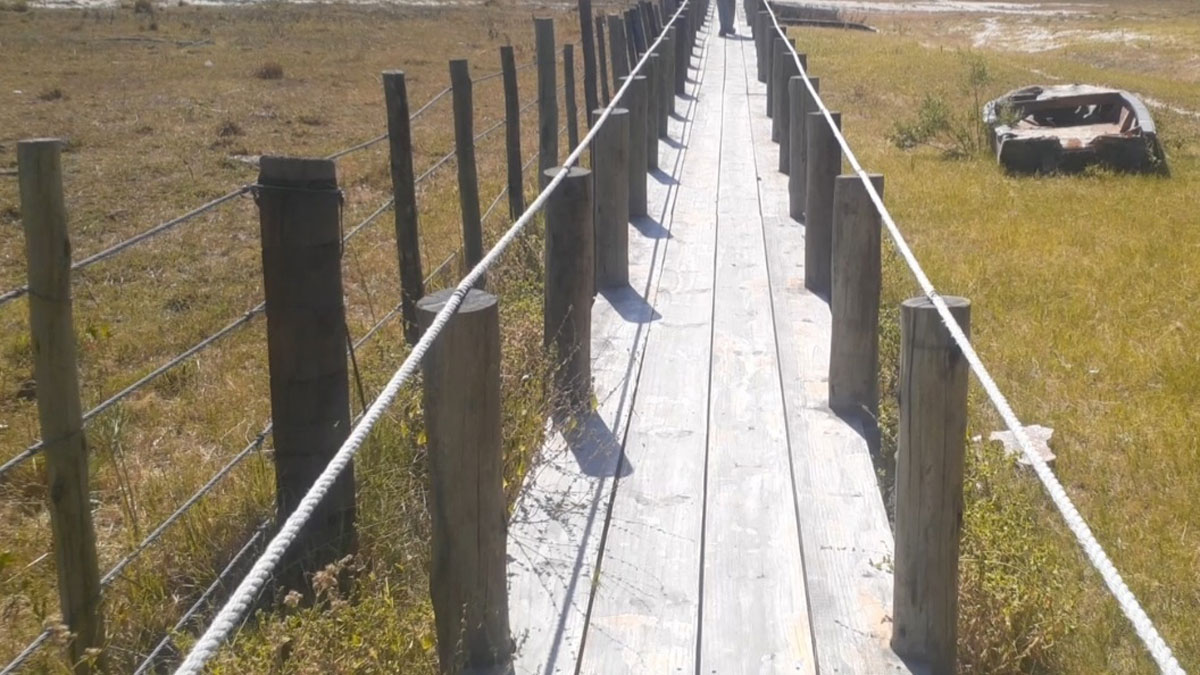Boro deserted as the river dries up
The silence is deafening.
The birds that usually flock to tree tops and sing their little hearts out are nowhere to be heard; neither is the laughter and good-natured chatter of the men and women who normally gather on the river bank.
The village is deserted, not even a stray dog remains to break the eerie quiet.
The elephants and livestock that often trundle down to the river for a dip and a drink have long since dispersed.
Three wooden canoes sit awkwardly in the dry grass near the wooden bridge, which reminds visitors that they have not inadvertently stepped into one of those pandemic movies, but rather have reached the popular Boro boat station.
The dry season is upon the Delta and Boro River, which is a lifeline for Boro community, has completely dried up, forcing residents to seek temporary homes where the water still flows just so they can survive.

As we take in the sombre, ghost-like setting, two young men walk towards us, having spotted our vehicle arrive in a whirl of dust.
After exchanging greetings, one of the youth, 22-year-old poler, Gaoetelwe Ditaelo, explains he has briefly returned to Boro to check on his hut. He does not plan to linger.
“Many people who stay here are polers like myself. Since the river is dry, they have gone to nearby villages such as Daunara and Morutsha. Some have taken their boats to Ditshiping because currently there is no ‘life’ here,” says Ditaelo, putting much emphasis on the word ‘life’.
Ditaelo adds life is very difficult for polers at the moment as they are competing for clients in the remaining channels, which are now increasingly crowded.
Boro channel is under the care of Boro community and Kopano Mokoro Community Trust, which is responsible for five villages including: Boro, Morutsha, Daunara, Xuoxao and Xaxaba.

Speaking at the ongoing Annual General Meeting (AGM) in Xharaxao settlement this week, the Trust Manager, Seikaneng Moepedi, confirmed to the five communities that polers, including those in Xharaxao, have to move to other areas since their streams are dry.
“We still have active stations such as Morutsha and Daunara, so polers have moved there as they wait for the flood,” said Moepedi, reiterating what we learnt from Ditaelo.
The annual flooding of the Okavango Delta starts around this time of year, with water flowing from the neighbouring Angolan highlands.
Updating the community on Monday, Water Utilities representatives revealed the approaching ‘metsi’ was roughly 109km away, trickling through Nxabega and was expected to reach Boro by June.
It means polers are in for an anxious wait as they also have to prepare for the famous river race, Nkashi, a popular poling competition scheduled for August in Maun, which recently gained global attention thanks to a National Geographic documentary.
Heats are scheduled for 29 and 30 May in Seronga and other areas in the Delta in preparation for the main Maun event; the polers of Boro seem destined to go in with precious little practice!







